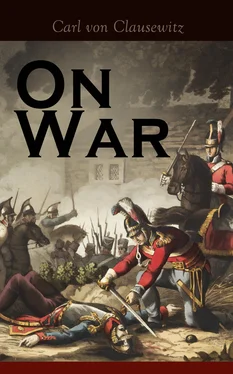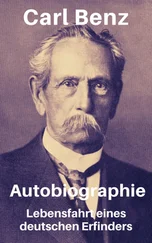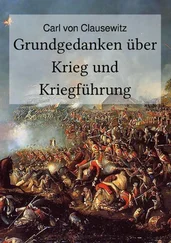When we are convinced of these difficulties in the use of historical examples, and at the same time of the necessity (of making use of such examples), then we shall also come to the conclusion that the latest military history is naturally the best field from which to draw them, inasmuch as it alone is sufficiently authentic and detailed.
In ancient times, circumstances connected with War, as well as the method of carrying it on, were different; therefore its events are of less use to us either theoretically or practically; in addition to which, military history, like every other, naturally loses in the course of time a number of small traits and lineaments originally to be seen, loses in colour and life, like a worn-out or darkened picture; so that perhaps at last only the large masses and leading features remain, which thus acquire undue proportions.
If we look at the present state of warfare, we should say that the Wars since that of the Austrian succession are almost the only ones which, at least as far as armament, have still a considerable similarity to the present, and which, notwithstanding the many important changes which have taken place both great and small, are still capable of affording much instruction. It is quite otherwise with the War of the Spanish succession, as the use of fire-arms had not then so far advanced towards perfection, and cavalry still continued the most important arm. The farther we go back, the less useful becomes military history, as it gets so much the more meagre and barren of detail. The most useless of all is that of the old world.
But this uselessness is not altogether absolute, it relates only to those subjects which depend on a knowledge of minute details, or on those things in which the method of conducting war has changed. Although we know very little about the tactics in the battles between the Swiss and the Austrians, the Burgundians and French, still we find in them unmistakable evidence that they were the first in which the superiority of a good infantry over the best cavalry was, displayed. A general glance at the time of the Condottieri teaches us how the whole method of conducting War is dependent on the instrument used; for at no period have the forces used in War had so much the characteristics of a special instrument, and been a class so totally distinct from the rest of the national community. The memorable way in which the Romans in the second Punic War attacked the Carthaginan possessions in Spain and Africa, while Hannibal still maintained himself in Italy, is a most instructive subject to study, as the general relations of the States and Armies concerned in this indirect act of defence are sufficiently well known.
But the more things descend into particulars and deviate in character from the most general relations, the less we can look for examples and lessons of experience from very remote periods, for we have neither the means of judging properly of corresponding events, nor can we apply them to our completely different method of War.
Unfortunately, however, it has always been the fashion with historical writers to talk about ancient times. We shall not say how far vanity and charlatanism may have had a share in this, but in general we fail to discover any honest intention and earnest endeavour to instruct and convince, and we can therefore only look upon such quotations and references as embellishments to fill up gaps and hide defects.
It would be an immense service to teach the Art of War entirely by historical examples, as Feuquieres proposed to do; but it would be full work for the whole life of a man, if we reflect that he who undertakes it must first qualify himself for the task by a long personal experience in actual War.
Whoever, stirred by ambition, undertakes such a task, let him prepare himself for his pious undertaking as for a long pilgrimage; let him give up his time, spare no sacrifice, fear no temporal rank or power, and rise above all feelings of personal vanity, of false shame, in order, according to the French code, to speak the Truth, the whole Truth, and nothing but the Truth.
12.General Scharnhorst died in 1813, of a wound received in the battle of Bautzen or Grosz Gorchen—EDITOR.
13.Frederick the Great’s celebrated entrenched camp in 1761.
BOOK III.
OF STRATEGY IN GENERAL
Table of Contents
Table of Contents
In the second chapter of the second book, Strategy has been defined as “the employment of the battle as the means towards the attainment of the object of the War.” Properly speaking it has to do with nothing but the battle, but its theory must include in this consideration the instrument of this real activity—the armed force—in itself and in its principal relations, for the battle is fought by it, and shows its effects upon it in turn. It must be well acquainted with the battle itself as far as relates to its possible results, and those mental and moral powers which are the most important in the use of the same.
Strategy is the employment of the battle to gain the end of the War; it must therefore give an aim to the whole military action, which must be in accordance with the object of the War; in other words, Strategy forms the plan of the War, and to this end it links together the series of acts which are to lead to the final decision, that, is to say, it makes the plans for the separate campaigns and regulates the combats to be fought in each. As these are all things which to a great extent can only be determined on conjectures some of which turn out incorrect, while a number of other arrangements pertaining to details cannot be made at all beforehand, it follows, as a matter of course, that Strategy must go with the Army to the field in order to arrange particulars on the spot, and to make the modifications in the general plan, which incessantly become necessary in War. Strategy can therefore never take its hand from the work for a moment.
That this, however, has not always been the view taken is evident from the former custom of keeping Strategy in the cabinet and not with the Army, a thing only allowable if the cabinet is so near to the Army that it can be taken for the chief head-quarters of the Army.
Theory will therefore attend on Strategy in the determination of its plans, or, as we may more properly say, it will throw a light on things in themselves, and on their relations to each other, and bring out prominently the little that there is of principle or rule.
If we recall to mind from the first chapter how many things of the highest importance War touches upon, we may conceive that a consideration of all requires a rare grasp of mind.
A Prince or General who knows exactly how to organise his War according to his object and means, who does neither too little nor too much, gives by that the greatest proof of his genius. But the effects of this talent are exhibited not so much by the invention of new modes of action, which might strike the eye immediately, as in the successful final result of the whole. It is the exact fulfilment of silent suppositions, it is the noiseless harmony of the whole action which we should admire, and which only makes itself known in the total result. Inquirer who, tracing back from the final result, does not perceive the signs of that harmony is one who is apt to seek for genius where it is not, and where it cannot be found.
The means and forms which Strategy uses are in fact so extremely simple, so well known by their constant repetition, that it only appears ridiculous to sound common sense when it hears critics so frequently speaking of them with high-flown emphasis. Turning a flank, which has been done a thousand times, is regarded here as a proof of the most brilliant genius, there as a proof of the most profound penetration, indeed even of the most comprehensive knowledge. Can there be in the book-world more absurd productions? 14
Читать дальше












